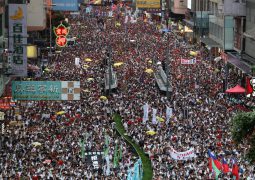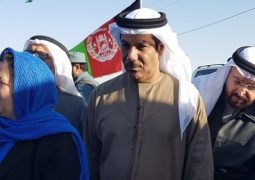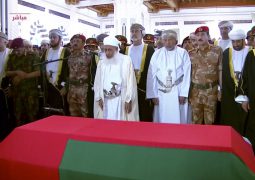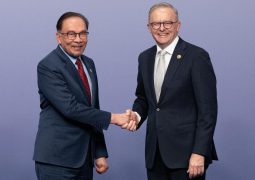Indonesia starts chairing UN GA: FM’s article: Blue Helmets: Model for global partnership
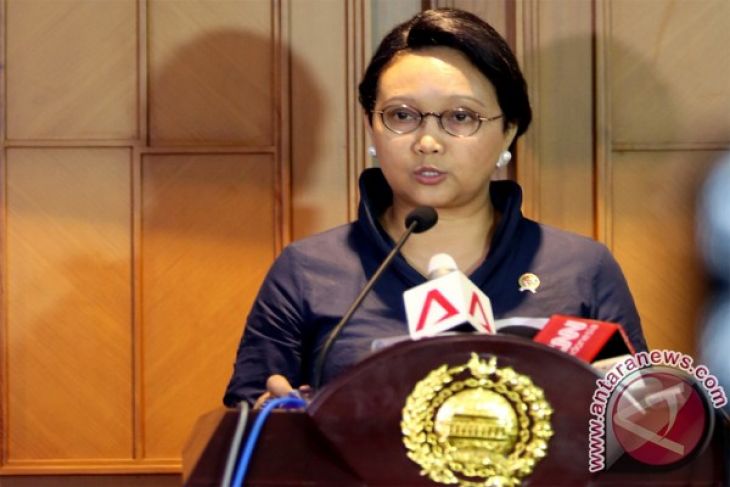
Retno LP Marsudi
Foreign Minister of Indonesia
New York / Mon, May 13, 2019
Members of the National Police’s Garuda Bhayangkara task force are inducted in a ceremony at the police training center in Bogor, West Java. (The Jakarta Post/PJ Leo)
For decades, the peacekeeping forces of the United Nations, the Blue Helmets,have been a distinct model of global partnership, collective leadership and shared responsibility in the interests of peace. However, with today’s new political and security realities, the challenges facing our peacekeepers are enormous. The incident in Mali, last January, brings home these realities.
The challenges range from the changing nature of conflicts and a lack of commitment to political solutions to inadequate preparation of troops and the involvement of transnational factors, including terrorism and foreign terrorist fighters.
All of these challenges impact the safety and performance of our Blue Helmets. It is important to keep in mind that the Blue Helmets represent the UN in general and its Security Council (UNSC) in particular at work. It is the face of the UNSC on the ground. They are the guardians of peace protecting millions around the globe.
In discharging their missions, a number of often overlooked facts illustrate the value of the UN peacekeepers.
The deployment of these guardians of the peace is more efficient than unilateral actions. Financially, Blue Helmet deployment is eight times less expensive than unilateral missions.
It is for this reason that Indonesia fully believes in peacekeepers, in adequately preparing them and investing in their performance, as investing in our peacekeepers is investing in peace.
As conflicts evolve, becoming increasingly multifaceted, our support for peacekeepers must keep pace with the challenges at hand. In that context at the UNSC I have emphasized the need to pay greater attention to the following aspects.
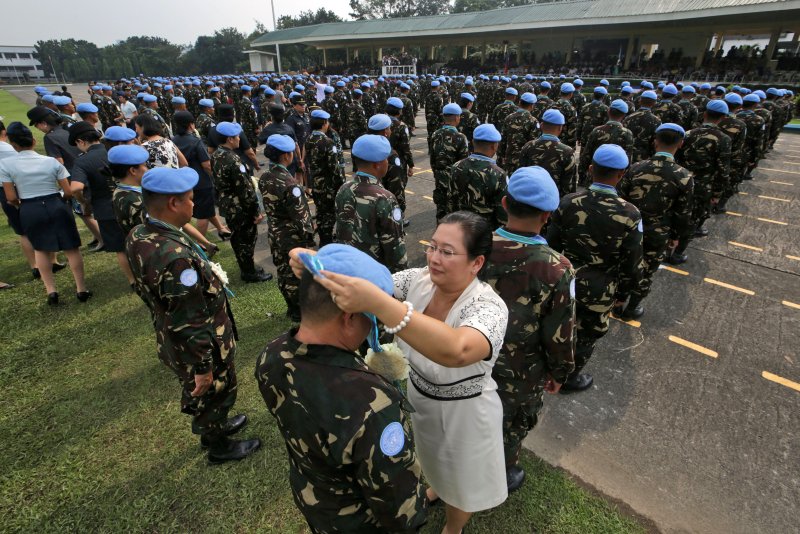
First, a mission-specific approach is necessary, one-size-fits-all is insufficient. From the perspective of a troops-and-police contributing country, the success of the mission will depend on adequate pre-deployment preparation. It must also be grounded on knowledge of local needs and conditions.
This requires better consultation between the UNSC, host countries, contributing countries and the UN Secretariat, as well as consultation to ensure better synergy between mandates, actual needs on the ground, and training.
Second, community engagement is crucial. In the UNSC chamber, I shared a story of one of our peacekeepers: Major Gembong, currently serving in the UN Organization Stabilization Mission in the Democratic Republic of the Congo (MONUSCO).
He witnessed families separated by conflicts and took an initiative to work toward family reunification. Major Gembong and his capable team talked to community leaders, heads of villages and families to allow reintegration of former combatants back into the community.
The approach has worked. So far, 422 former combatants have been reunited with their families in their communities where peace prevails. Indeed, peacekeepers’ capabilities should go beyond basic soldiering skills and be complemented with soft skills such as communication and trust building.
Third, investing in women equals investing in peace. Female peacekeepers are more effective in winning the hearts and minds of local populations;providing comfort for those traumatized by conflicts.
There is also strong evidence that women’s participation in peace processes increases the likelihood of sustained peace by 20 percent as well as contributing to longer and more resilient peace.
We must therefore make peacekeeping more conducive for female peacekeepers by working in partnership to overcome barriers to women’s meaningful participation in peacekeeping. We must also develop specialized training schemes to enable female peacekeepers to optimize their potential.
In that respect, Indonesia is committed to enhancing the role of female peacekeepers. For the first time, the number of our female peacekeepers has exceeded 100 and we are committed to further increasing this number.
Beyond female peacekeepers, Indonesia is determined to continuously enhance the role of women as agents of peace. That is why we organized a Regional Training on Women, Peace and Security, in Jakarta last month, for young female diplomats in the Southeast Asian region.
Finally, training requires partnership. As our challenges become ever more complex, training should be adaptive.
This requires investment in training and capacity building, supported by partnership among member states.
As proof of Indonesia’s commitment, I offered the Indonesian Peacekeeping Center [in Sentul, West Java],to serve as an international training hub.
More innovative approaches in training such as triangular partnerships will deliver more value. Indonesia will host the Triangular Partnerships Projects in 2020-2021. This initiative aims to provide quality training for peacekeepers in Southeast Asia and beyond.
Another possible area of cooperation that Indonesia is exploring with its international partners is joint training to support co-deployment between contributing countries.
UN Peacekeeping is a portrait of multilateralism at its best. It is the most legitimate and effective tool for maintaining peace.
Indonesia proposed a Presidential Statement on peacekeeping training and capacity building, which all the members of the UNSC subsequently endorsed. It is the first document of the council focusing on training and capacity building. This will promote the performance, safety and security of peacekeepers in support of the Action for Peacekeeping as initiated by the secretary-general of the UN.
Let us all stand firm behind our Blue Helmets, and provide them with all the support they deserve.
_______________________
The writer is the foreign minister, currently presiding over the United Nations Security Council (UNSC) for the month of May. The above is her speech delivered on May 7 at the UNSC open debate on peacekeeper training
- Previous Not a chickenpox – monkeypox! Singapore reports first case of rare monkeypox virus
- Next Yet another flashpoint in Asia Pacific: More than half of 539 sunk fishing ships come from Vietnam



